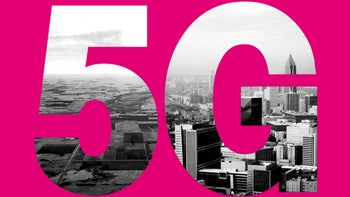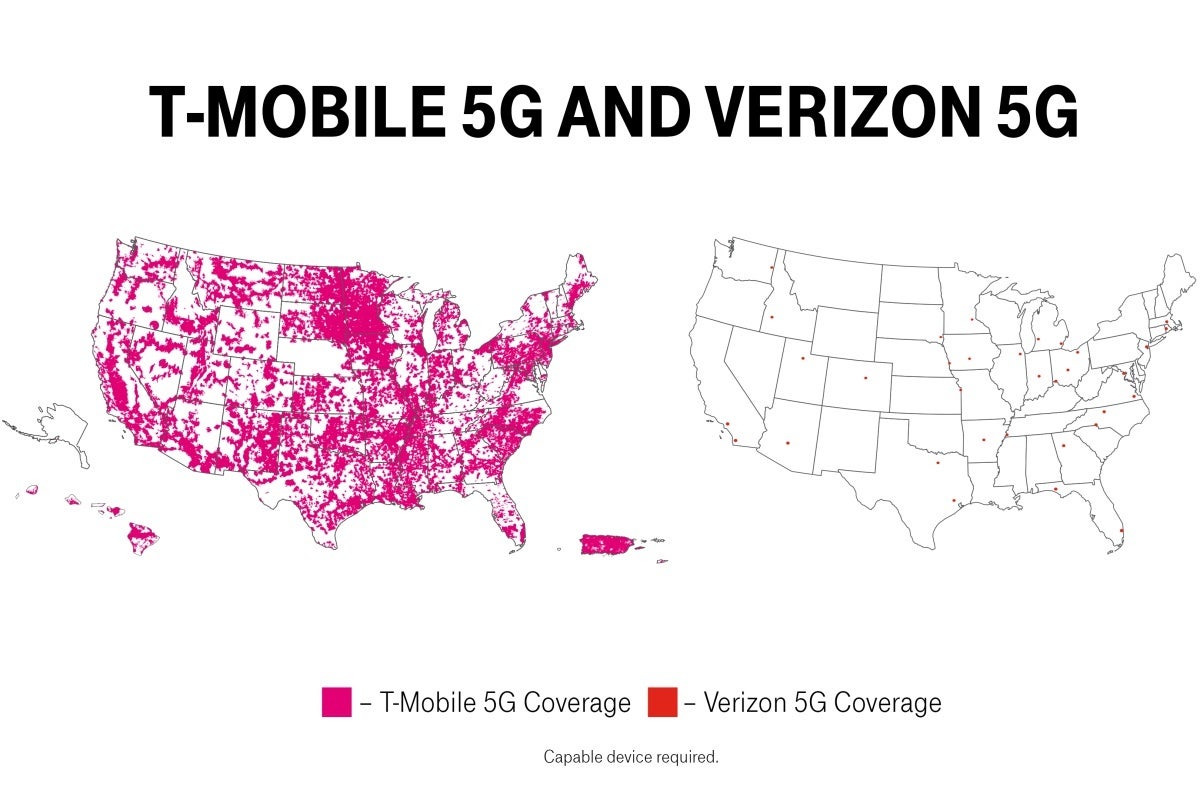T-Mobile may have won the US 5G war before Apple's iPhone 12 is even released

It's no big secret that the 5G wireless landscape in the US is still more than a little messy even after all three major carriers have announced "nationwide" rollouts of their next-gen cellular technologies, and unsurprisingly, the imminent arrival of Apple's iPhone 12 family is indirectly causing further confusion as Verizon, AT&T, and T-Mobile are ramping up their already aggressive and hyperbolic promotion.
While Big Red seized the spotlight... for around 60 seconds during the actual iPhone 12 5G launch event and a couple of minutes afterwards with its long overdue Magenta-rivaling nationwide 5G expansion, T-Mo quickly opened the social media floodgates to debunk Verizon's grandiose claims and ridicule what's broadly considered a losing strategy.
- iPhone 13: price, release date, features, and specs
In these types of situations, you'd normally expect the truth to lie somewhere in the middle, but for the umpteenth time in recent months, a number of analysts seem to fully agree with T-Mobile's assessment of both the industry's current state of affairs and its mid to long-term outlook.
T-Mobile is undoubtedly the best carrier for your iPhone 12
Unless you're in the 1 percent of Americans that can access Verizon's insanely fast Ultra Wideband 5G network, the top download speeds for your next big iPhone acquisition will be available on T-Mobile, and obviously, the same goes for the vast majority of 5G-enabled Android handsets you can currently purchase or pre-order stateside.
Of course, that may not be true everywhere, but while Verizon and AT&T's mmWave signals are estimated to cover less than 10 million if not less than 5 million people around the country at the moment, T-Mobile claims its mid-band 5G layer alone serves a whopping 25 million Americans already on the path to breaking the 100 million barrier by the end of the year.

Although mid-band speeds are in theory considerably lower than what high-band (aka mmWave) can deliver, the former type of spectrum arguably strikes the best balance between coverage and speed of the three 5G flavors available in the US right now.
The beauty of the "Un-carrier's" layer cake approach is that it combines all three of those main technologies to provide low-band 5G service in more than 7,500 cities and towns across 1.3 million square miles for a total of 260 million people while vastly improving download speeds in places where mid-band integration is possible and cooking up a few mmWave rollouts of its own for even higher speeds in small parts of select metropolitan areas.
If you want to hear specific numbers, T-Mobile's mid-band 5G spectrum is apparently capable of delivering 300 Mbps averages and up to 1 Gbps peaks. That's roughly seven and a half times faster than today's 4G LTE technology (on average), and according to CEO Mike Sievert, about 100 million people will be able to squeeze those numbers from their hot new iPhones or Android handsets by the end of 2020 without worrying about obstacles like trees or buildings.
The best Verizon and AT&T can do is try to close the gap
If 100 million sounds like a lot of Americans to cover so soon after T-Mobile merged with Sprint, you might be amused to hear industry pundits are just as surprised and impressed as all of us by this "significantly higher" goal than their original expectations.
It's important to point out that the huge amount of spectrum acquired from Sprint is only one piece of T-Mobile's much larger 5G puzzle, with an array of lease agreements signed in the last few months to help consolidate an already massive lead over Verizon and AT&T in mid-band holdings.

Following the likes of Dish and Columbia Capital, T-Mo is aiming to strike similar deals with a company called Tstar. Meanwhile, the competition will try to close the gap in mid-band resources at a fast-approaching C-band auction, but even though Big Red is widely expected to substantially outbid Magenta, catching up to the early 5G market leader seems virtually impossible.
Instead, both Verizon and AT&T are forecasted to start closing the "fast 5G" gap in 18 to 36 months... at best, and that's pretty much it. While it's rarely wise to make long-term predictions in such a volatile industry, analysts simply see no way for T-Mobile's supremacy in both 5G speeds and coverage to be challenged anytime soon. Possibly, ever.
















Things that are NOT allowed: